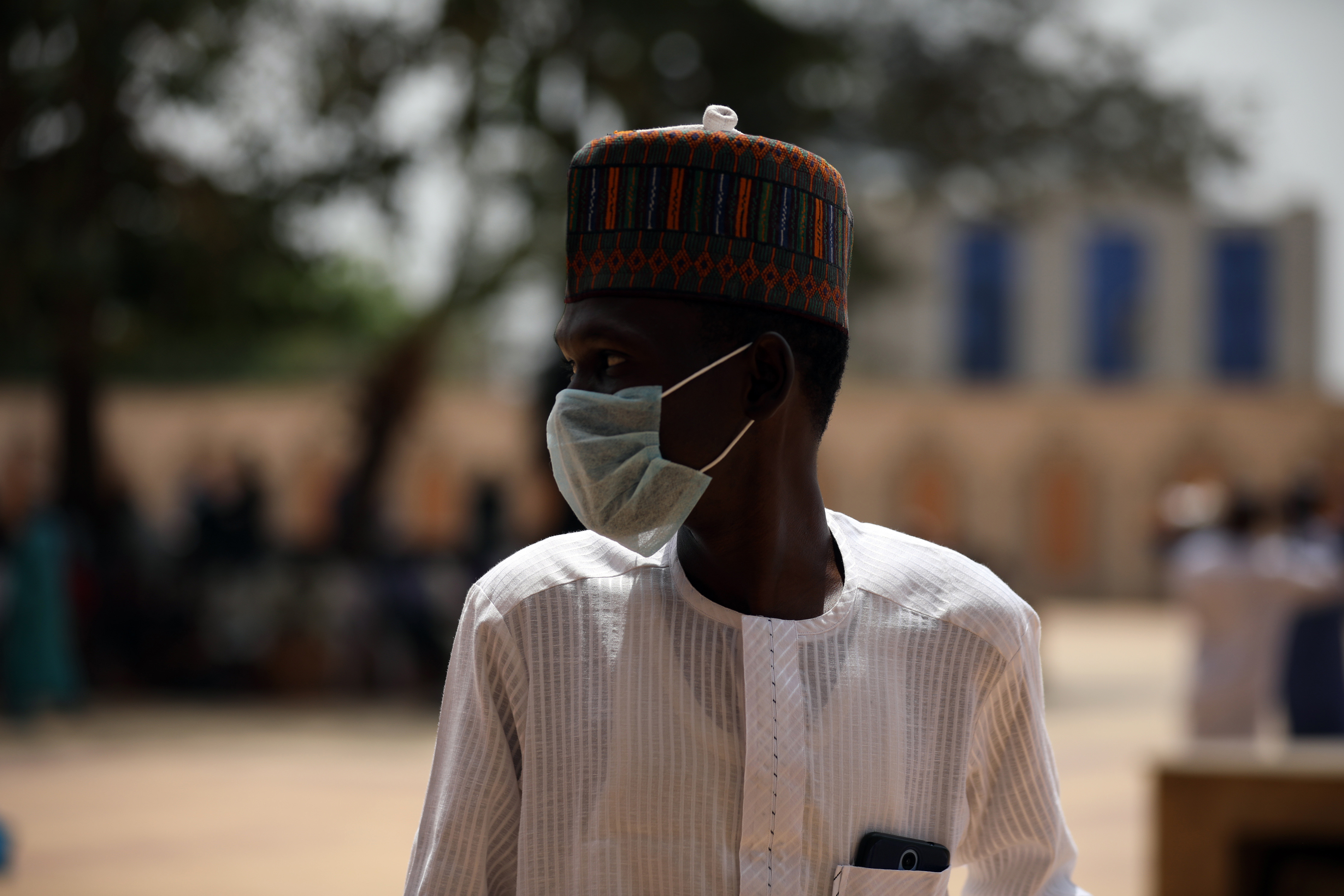The Nigeria Centre for Disease Control (NCDC) has warned that using only the face masks is not a cure for or a strategy to curb the spread of the COVID-19 pandemic.
The Director-General of the NCDC, Dr. Chikwe Ihekweazu, gave the warning on Friday in Abuja at the 9th joint national briefing of the Presidential Task Force (PTF) on COVID-19.
Ihekweazu said that instead of maintaining the ‘social distance’, it is better to keep ‘physical distance’ of two metres, as this plays a critical role in reducing the spread considering that the country is among the most densely populated.
“Even when we announce our decision on mask, the masks are not going to solve the problem. So, there have been some messages around the country seeming to imply that wearing a mask makes all the other measures no longer necessary. This is simply not the case.
“If we do offer an advisory around masks, it will be in addition to everything else; it will not be in place of it. So, we have to understand the reasons for these measures. The Google mobility report for Nigeria, tells the level of intensity of contact between individuals in different locations in Nigeria. The last one from the 29th of March shows that mobility trends in leisure centres, supermarkets, transport hubs, and places of employment in Nigeria has reduced by about 27 percent.
“That is very good but it’s not enough and we have to push that proportion even further down. So, I’m hoping that as data becomes available for the next few days, we will see a further reduction because our future really depends on this. What we are suggesting is not for you to be socially apart from each other, we are suggesting that we stay physically apart. You can use technology to enhance your social relations.”
He said that it is the citizens closeness to each other that enables the virus to transmit from one to the other and that physical distancing is the most important.
He warned that there are people that carry the virus without presenting symptoms, adding that the most important thing is that people can be infectious two days before the symptoms appear and this is called pre-symptomatic phase.
He said, “While everybody has been talking about the asymptomatic, the most important are the pre-symptomatic. People that have become infected, will become symptomatic but don’t know yet because there in a few days before that has happened and that is why we have to increase the distance between us”.
The lockdown
President had ordered the lockdown of FCT, Lagos and Ogun States in a broadcast on 29 March, 2020 for an initial period of 14 days with effect from 11pm on Monday, 30th March 2020.
“Based on the advice of the Federal Ministry of Health and the NCDC, I am directing the cessation of all movements in Lagos and the FCT for an initial period of 14 days with effect from 11pm on Monday, 30th March 2020.
“This restriction will also apply to Ogun State due to its close proximity to Lagos and the high traffic between the two States.
“All citizens in these areas are to stay in their homes. Travel to or from other states should be postponed. All businesses and offices within these locations should be fully closed during this period.
“The Governors of Lagos and Ogun States as well as the Minister of the FCT have been notified. Furthermore, heads of security and intelligence agencies have also been briefed,” he said.
Also, most states of the federation is currently in full or partial lockdown as authorities make efforts to curb the spread of the virus.
Cases in Nigeria
The number of confirmed coronavirus cases in Nigeria, is now 305 as 17 new cases were reported on Friday.
The cases were reported in six states and the Federal Capital Territory, FCT.
Anambra and Niger recorded one case each.
The virus has spread to 18 states and the FCT.
The confirmed cases in states are Lagos- 163, FCT- 56, Osun- 20, Edo- 12, Oyo- 11, Bauchi- 6, Akwa Ibom- 5, Ogun- 7 and Kaduna- 6.
Others are Enugu- 2, Ekiti- 2, Rivers-2, Kwara- 2, Delta- 2, Benue- 1, Ondo- 2, Katsina-4, Niger- 1 and Anambra- 1.

 Join Daily Trust WhatsApp Community For Quick Access To News and Happenings Around You.
Join Daily Trust WhatsApp Community For Quick Access To News and Happenings Around You.


